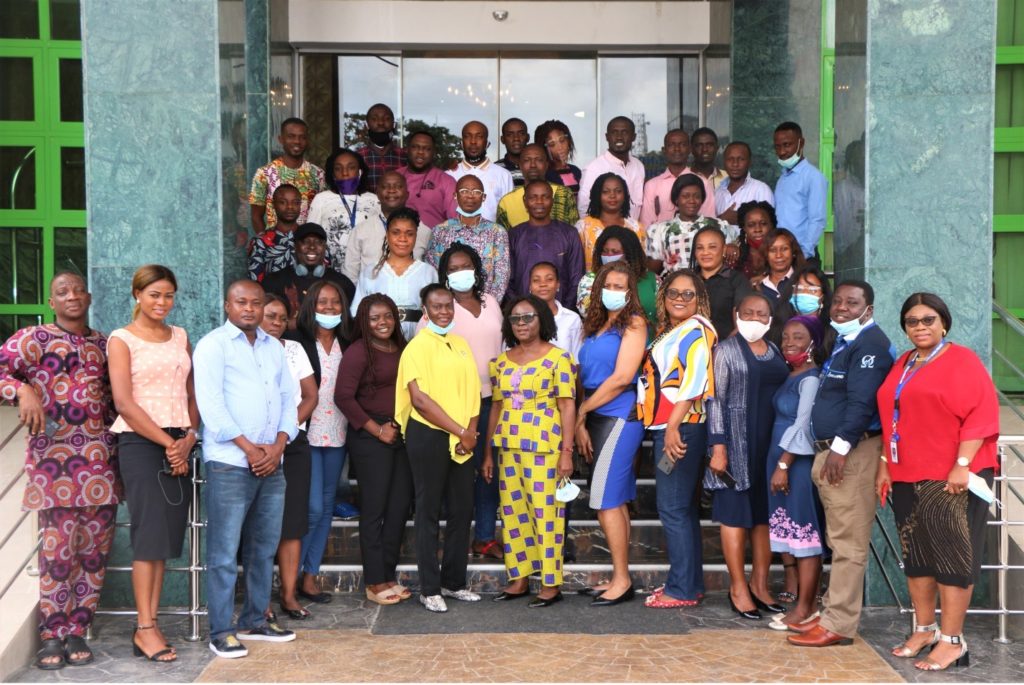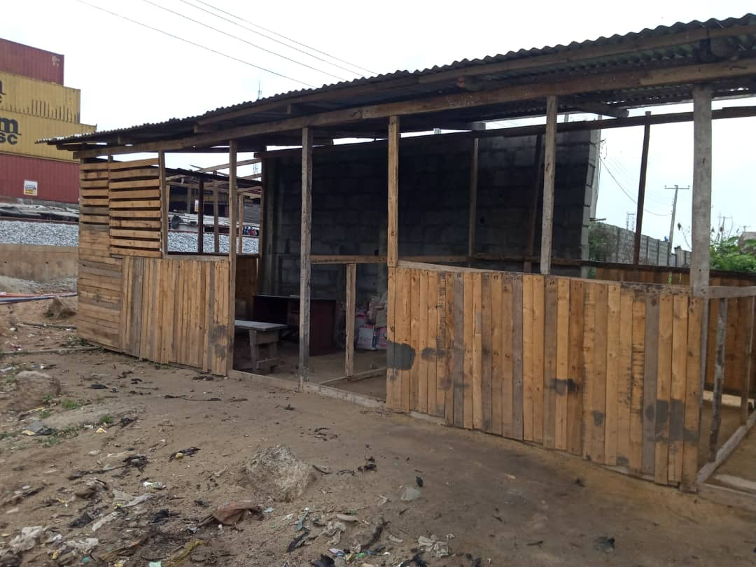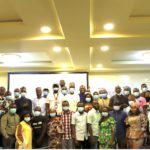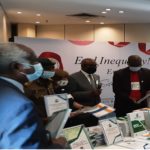FHI 360: EARLY CHILD CARE AND DEVELOPMENT
AN ICHSSA SUCCESS STORY
The Integrated Child Health and Social Services Award (ICHSSA) in its process of implementation in Lagos State with the Association for Reproductive and Family Health (ARFH) as its primary partner alongside FHI360 and Project HOPE as sub-recipients. The project is currently in execution in eleven (11) LGAs namely Agege, Ajeromi, Apapa, Badagry, Kosofe, Surulere, Shomolu, Lagos Island, Lagos Mainland, Ikorodu and Ojo in Lagos State. The project focuses on providing gender-sensitive HIV services, comprehensive health, and social services to Orphan and Vulnerable Children (OVC) with the inclusion of their households, via a partnership with Community-Based Organizations (CBOs); which supervise and monitor an array of Case Managers at the facility and community level for effective service delivery.
In line with The U.S. President’s Emergency Plan for AIDS Relief (PEPFAR) and UNAIDS “95-95-95” goals, FHI360, as a sub-recipient of the ICHSSA-2 project, contributes to protecting children who are vulnerable to acquiring HIV while ensuring children, who are HIV positive are diagnosed, treated, and remain adherent to their medications to become virally suppressed. FHI360 is also contributing to the Prevention of Mother to Child Transmission (PMTCT) of HIV/AIDS.
Early childhood (EC)
is the period of a child’s life from conception to age eight, this is the most rapid period in human development and critical to the holistic development of the child. However, in Nigeria, it is between the age of 0-5years.
In 2015, Early Childhood Development (ECD) was part of the Sustainable Development Goals of 2030. Shortly after its inclusion, it was observed that this area has subsequently been underfunded and poorly executed. With the project, ECD has been able to identify lots of children under the age of 5 who are missing out on adequate nutrition, protection, and stimulation they require. The addition of vulnerability to HIV/AIDS further compounds the problem.
FHI360 is mandated to provide technical assistance through capacity building, and for this, a training for ARFH staff and CBO staff on ECD was organized in August 2020 with the objective of: –
- Familiarizing participants with the concept of Early Child Care and Development (ECCD) and its importance
- Improving the understanding of the comprehensive approach to ECCD program
- Identifying and explaining integrated ECCD with other components such as OVC, Nutrition, PMTCT, Caregiver/Mother’s association, etc…
- Incorporating ECCD into the ICHSSA Project
At the end of the training, each CBO came up with an action plan which includes:
- Mapping out all ECD centers in all communities
- Identifying from NOMIS to identity all 0-5years not in ECD
- Aggressive awareness to the caregivers of ECD during community activities
- Advocacy visit to the community leaders, Child Protection Committee (CPC), and Continuous Quality Improvement team (CQIT)
- Leveraging on existing structures/ECD centers to strengthen their capacity
After training one of the CBO’s in Apapa, an LGA took a bold step to establish an ECCD center in one of the communities called Ijora-Badia Apapa. With virtually no modern infrastructure except for the rail lines that pass through the area, Ijora Badia is home to hundreds of Commercial Female Sex Workers including adolescent girls who ply their trade day and night, beckoning potential customers from doorways. These women and girls have children below the age of five (5).
Children of female sex workers (CFSWs) are a highly vulnerable group of children due to their exposure to a combination of health, and socio-economic risk factors. They often live in extreme poverty, experience food insecurity, have poor access to essential services, and are at high risk of HIV infection, as well as physical, emotional, and sexual violence. Many of these risks are the result of stigmatization, discrimination, and social exclusion due to their mothers’ nature of work.
The CBO succeeded in constructing a basic 3-classroom ECCD Centre in October 2020 but could not commence due to the lack of necessary teaching materials. Establishing this center was necessary as the public primary school called Ijora primary school is 10 minutes’ walk from the location and the number <5 children from female sex workers seems to be growing with a preparatory school or daycare close by. A Major challenge which remains is the fact that these children are exposed to their mothers’ line of work.
FHI360 was able to procure some materials to support the center and ease the efforts of teaching for the teachers.
Items procured were:
- Table and chair for the teachers
- 4 Potty chair
- 2 Playmat
- 2 Stackable
- 2 Whiteboard, 3 packs of makers, and 3 dusters
- 3 Rolls of tissue paper
- 2 Rakes
- 4 Broomsticks
- 2 Mob and bucket
- 11 Packets of exercise books
- 1 Cartoon of stationaries
- 2 Liquid soap
- 1 Cartoon bathing soap
- 2 Cartoon of bar soap
- 2 Cartoon of detergent
- 5 Wallpapers
- 5 Packets of educational toys
- 1 Water tank
- 2 Cartoon of hand sanitizer
- 2 Wall stickers
- 30 Quantitative lesson books
- 2 Bucket with tap
- 6 Children’s plastic chairs and tables





